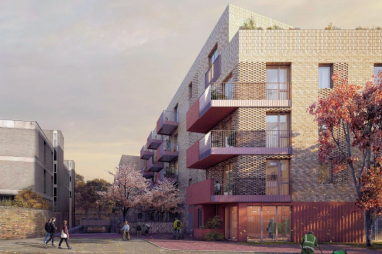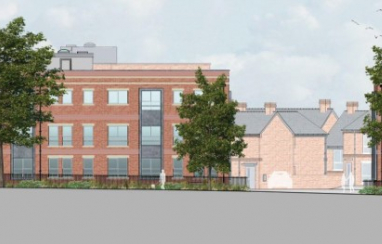- Украина #111961088 , Чоловічі кросівки adidas alphabounce сині з білим кросівки адідас альфабаунс чудової якості — цена 1435 грн в каталоге Кроссовки ✓ Купить женские вещи по доступной цене на Шафе , adidas Kortærmet T-Shirt Barricade
- adidas ultraboost triple white , Украина #139909215 , Кроссовки высокие мужские зимние на меху adidas climaproof черные ботинки для мужчин зима — цена 2340 грн в каталоге Ботинки ✓ Купить мужские вещи по доступной цене на Шафе
- air jordan 5 island green releasing in november (2023) , SBD , air jordan 5 island green releasing in november
- nike junior av hooded top black white , Nike Air Yeezy Slippers
- adidas return period calendar today , Langcom? , Yellow adidas Originals Samba OG
- Air Jordan 3 Rust Pink CK9246 600
- air jordan 4 white tech grey black fire red ct8527 100 release date
- new air jordan 1 high og osb dian blue chill white cd0463 401
- Travis Scott Air Jordan 1 High OG CD4487 100 Release Date Price
- air jordan spring 2021 retro collection release date info
- Home
- News and analysis
- Info hubs
- Events
- Video
- Case Studies
- About us
- Magazine
- Advertising
Produced for the industry by the Association for Consultancy and Engineering
News
Prime minister’s warning to local councils to approve more homes faces backlash

Theresa May has called out developers to “do their duty to Britain and build the homes our country needs” as the prime minister once again emphasised how housing remains at the top of her agenda.
In a speech in London on 5 March 2018, , May claimed the housing crisis was fast becoming a barrier to social mobility, noting the crisis around affordability in many areas, while stating the UK had failed to build “the right homes in the right places”. In an attempt to combat housing shortages, May unveiled a range of measures aimed at boosting the speed of housebuilding and easing prices.
Central to her pledge to ensure 300,000 new homes are built every year by the mid-2020s is a major overhaul to the National Planning Policy Framework, the first in six years. The new framework aims to maximise the use of land, strengthen protections for the green belt and place a greater emphasis on converting planning permissions into homes.
Local authorities will have a new housing delivery test focused on driving up the numbers of homes actually delivered in their area, rather than numbers planned for. Developers will also be held to account for delivering the commitments, including affordable housing and the infrastructure needed to support communities.
In her speech, May said: “It’s all about making this country a fairer place for all, breathing fresh life into the British dream that every generation has a better future than the last. But we cannot fulfil that dream, we cannot bring about the kind of society I want to see, unless we tackle one of the biggest barriers to social mobility we face today: the national housing crisis. The causes and manifestations vary from place to place but the impact is all too clear - in much of the country, housing is so unaffordable that millions of people who would reasonably expect to buy their own home are unable to do so. Others are struggling even to find somewhere to rent.”
National Policy Framework measures include:
- 10% of homes on major sites should be available for affordable home ownership
- Builders to be more open about affordable housing commitments at planning stage
- Infrastructure needs to be considered at pre-planning stage
- Councils to consider revoking planning permission after two years if building has not started
- Ancient woodland and aged trees to get specific protection
As part of the prime minister’s hard line on developers and councils, May said that a company’s past record of delivering affordable housing should be taken into account when it bids for planning permission for new properties and independent inspectors will be given the power to take over decision-making in local areas if “nimby councils” fail to publish housing plans quickly enough.
But May’s speech has received a frosty reception from some quarters, with the Local Government Association disappointed by the prime minster’s finger pointing towards local councils for their apparent role in obstructing housebuilding.
Its chair, Gary Porter, believes her criticism is somewhat unwarranted and highlighted the fact that over the past 12 months, councils had granted nearly twice as many planning permissions as the number of new homes that had been completed.
Commenting on May’s speech today, Porter said: “The truth is that councils are currently approving nine in ten planning applications, which shows that the planning system is working well and is not a barrier to building. Nearly three-quarters of planning refusals are upheld on appeal, vindicating councils’ original decisions. It is completely wrong, therefore, to suggest the country’s failure to build the housing it desperately needs is down to councils.”
John Healey, Labour’s shadow housing secretary, also blasted today’s announcement and claimed the government still remains without a coherent plan to tackle the crisis.
“The prime minister should be embarrassed to be fronting up these feeble measures first announced a year ago,” Healey said. “After eight years of failure on housing it’s clear her government has got no plan to fix the housing crisis. Since 2010, home-ownership has fallen to a 30-year low, rough sleeping has more than doubled, and deep cuts to housing investment have led to the lowest number of new social rented homes built since records began.”





